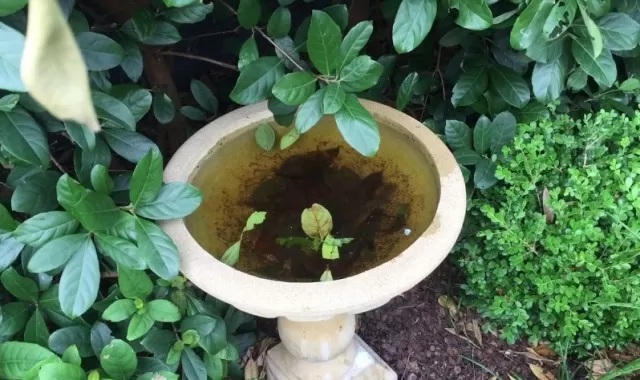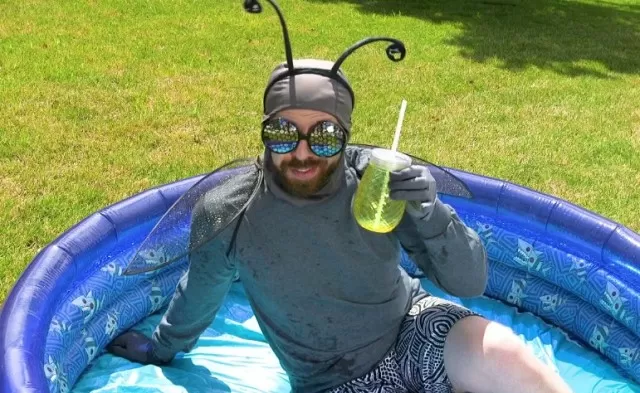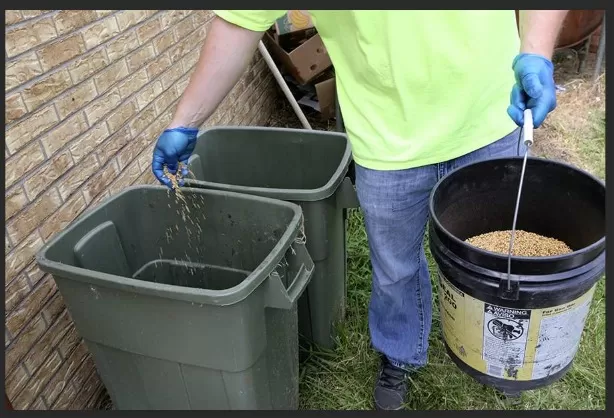Common Mistakes That Can Aggravate Your Mosquito Problem.Summertime often brings with it the pesky presence of mosquitoes, and their propensity to breed in stagnant water poses a particular challenge. With the onset of warm weather and increased humidity, even small bodies of standing water can swiftly transform into thriving mosquito nurseries. It’s worth noting that a single female mosquito can lay a staggering 3,000 eggs in her lifetime.
The first line of defense against mosquito infestations in your backyard is prevention. Regularly inspect your property for areas where standing water may accumulate, paying particular attention to potential problem spots. Remain vigilant, as mosquitoes might be lurking and hatching in unexpected locations. By staying proactive and addressing these potential mosquito breeding sites, you can significantly reduce the mosquito population in your Outdoor Spaces and enjoy a more pleasant summer outdoors.
Maintain Your Birdbath for a Mosquito-Free Avian Haven

Birdbaths can be a delightful addition to your garden, providing enjoyment for both the feathered friends who visit and us humans who observe them.
However, without proper care, a birdbath can transform into a stagnant pool that attracts more mosquitoes than it does birds. To ensure that your birdbath remains a welcoming spot for our avian companions and not a mosquito nursery, it’s essential to establish a routine of daily maintenance.
Simply emptying and refilling your birdbath each day can prevent stagnant water from becoming a breeding ground for mosquitoes.
This small but consistent effort not only safeguards the health and comfort of your feathered visitors but also contributes to a mosquito-free outdoor environment for you and your family to enjoy. So, show some love to your birdbath, and keep it inviting and pest-free for all to relish.
Say Goodbye to Clogged Gutters and Mosquito Woes
It’s easy to overlook clogged gutters as they tend to be “out of sight, out of mind,” but they can quickly become notorious breeding grounds for mosquitoes.
To keep your home mosquito-free, take proactive steps to maintain your gutters and downspouts.
Each spring, clear away leaves and twigs from your gutters to ensure rainwater can flow freely and not pool in debris.
By doing this, you prevent the creation of stagnant water sources where mosquitoes can lay their eggs. If you notice your mosquito problem worsening in late summer, don’t forget to inspect your gutters to make sure they remain clear and dry.
Taking these measures not only promotes a mosquito-free environment but also preserves the functionality of your gutter system, ensuring it efficiently directs rainwater away from your home.
Mosquito-Proofing the Kiddie Pool

A kiddie pool provides boundless enjoyment for young children, but it can also become an unintentional breeding ground for mosquitoes.
To ensure that this aquatic playground remains a source of fun and not a mosquito magnet, follow these simple steps.
After the splashing and water play have concluded, promptly empty the kiddie pool of water.
To further deter mosquitoes from using it as a breeding site, turn the pool upside down. By doing so, you prevent rainwater from accumulating in the pool and, consequently, discourage mosquito larvae from thriving in the stagnant water.
This straightforward practice not only keeps your little ones safe from mosquito bites but also contributes to a more mosquito-free environment around your home, allowing everyone to enjoy outdoor playtime to the fullest.
Tackling Mosquito Breeding Sites: Don\’t Overlook the Tire Swing
While many of us are cautious about keeping spare tires in our yards due to concerns about rainwater, pests, and rot, we sometimes overlook an unsuspected mosquito hotspot—the tire swing.
To keep these areas mosquito-free, it’s essential to include them in your regular inspection and Maintenance routine.
Make it a habit to empty the tire swing regularly, ensuring that no stagnant water accumulates inside.
For a more proactive approach, consider drilling holes in the bottom of the tire. This modification allows water to drain instantly, preventing the formation of stagnant pools where mosquitoes can breed.
By addressing these often-neglected areas, you not only create a safer and more comfortable outdoor environment but also contribute to a mosquito-free space for your family and friends to enjoy.
Covering Trash Cans: Keeping Pests and Mosquitoes at Bay

Covering your trash can serves multiple purposes beyond being a courtesy to sanitation workers.
It’s a crucial step in preventing rodents, insects, and mosquitoes from congregating around your waste. To ensure effective coverage, make sure the lid is securely fastened, often accompanied by a noticeable click.
A properly sealed trash can lid will stay firmly in place even during rainstorms, keeping the interior dry and inhospitable to mosquitoes.
By adopting this simple practice, you not only create a cleaner and more sanitary environment but also minimize the chances of mosquito infestations around your home. So, cover those trash cans to bid farewell to unwanted pests and mosquitoes.
*The information is for reference only.